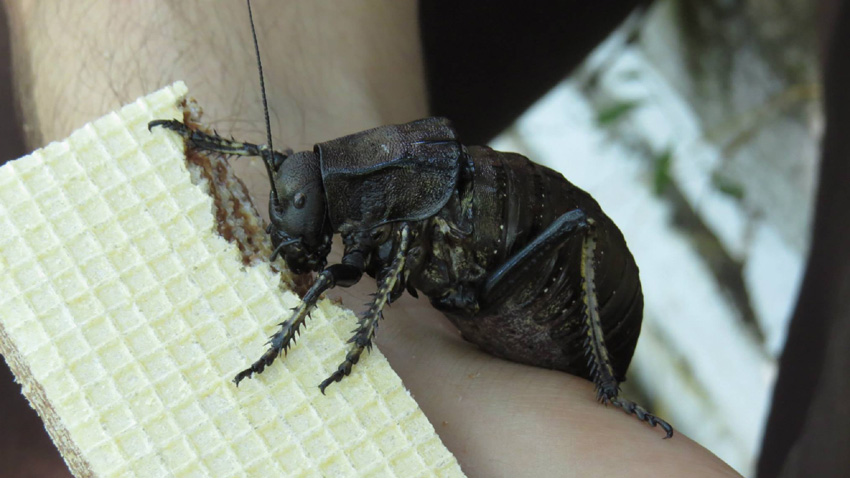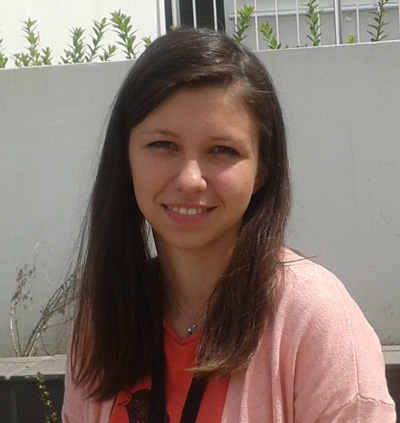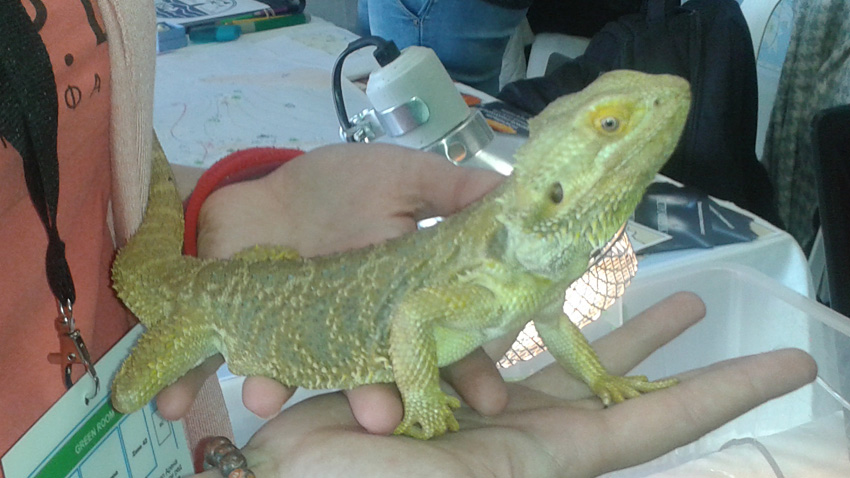Starling – the songster that is so common to forests in this country – has given its name to a student club of biologists and nature lovers. In their interpretation Starling or SKORETS in Bulgarian is an acronym meaning: Student Club of Education and Development with Environmental Centre.
 The idea to set up such a club belongs to a group of enthusiasts studying biology who turned one of the abandoned department laboratories into a place all their own, a place where they can meet and raise small animals. The club has many objectives, but was founded to study animal behavior and the way animals communicate with each other. The students started raising animals nine years ago and brought in the first specimens from their own homes. Now there are around 50 animals there, not counting the fish, of which there is the greatest number of different species. More and more students have been coming to the club to help take care and to study the animals. Even colleagues of theirs who have gone to study abroad have been lending a hand with information and professional contacts. Including the freshmen and the people who have already graduated the biology faculty, the SKORETS community is now upwards of 500 students.
The idea to set up such a club belongs to a group of enthusiasts studying biology who turned one of the abandoned department laboratories into a place all their own, a place where they can meet and raise small animals. The club has many objectives, but was founded to study animal behavior and the way animals communicate with each other. The students started raising animals nine years ago and brought in the first specimens from their own homes. Now there are around 50 animals there, not counting the fish, of which there is the greatest number of different species. More and more students have been coming to the club to help take care and to study the animals. Even colleagues of theirs who have gone to study abroad have been lending a hand with information and professional contacts. Including the freshmen and the people who have already graduated the biology faculty, the SKORETS community is now upwards of 500 students.
 “The most valuable thing the club has given us is that here we have our own university space,” says 4th year biology student Lina Paunova. In her words the club makes students feel wanted and useful and gives them a place to spend their leisure time gainfully. Lina goes to the lab to look after the animal every day, even during holidays. The biology faculty is often visited by small children, for whom this is the first time they come in contact with real, live reptiles. “The place is just perfect for visits by children with their parents,” Lina Paunova says and adds:
“The most valuable thing the club has given us is that here we have our own university space,” says 4th year biology student Lina Paunova. In her words the club makes students feel wanted and useful and gives them a place to spend their leisure time gainfully. Lina goes to the lab to look after the animal every day, even during holidays. The biology faculty is often visited by small children, for whom this is the first time they come in contact with real, live reptiles. “The place is just perfect for visits by children with their parents,” Lina Paunova says and adds:
 “It all started with pets the students had at home, but were unable to look after properly, but wanted to study them. For instance we have a rabbit who has been with us for eight years. The people who brought him in developed an allergy and couldn’t keep him any longer. He is one of the oldest animal at the club. We study our animals and observe their behavior in different seasons. We have put bird feeders on the window and we frequently use them to conduct our studies. We published a scientific paper on the matter – what kind of birds come to feed in winter and the way different bird species interact. It proved to be an interesting case study with students, lecturers and quite a few researchers from the country and abroad taking an interest in it. We now have a great many different fish species at the laboratory because biology studies the behavior of different species. The underlying idea in founding this club is most of all educational. Here students are able to watch real animals and recognize them when they see them in the wild. Sometimes we have injured animals coming here, in these cases we get in touch with the veterinary clinic we rely on 24/7. People usually don’t know where to take an injured bird, for example. We have been trained by our professors, we know how to react, what to do. This is knowledge we pass onto the younger students who take over from us. Even if they come here just once a week, it is still a great help.”
“It all started with pets the students had at home, but were unable to look after properly, but wanted to study them. For instance we have a rabbit who has been with us for eight years. The people who brought him in developed an allergy and couldn’t keep him any longer. He is one of the oldest animal at the club. We study our animals and observe their behavior in different seasons. We have put bird feeders on the window and we frequently use them to conduct our studies. We published a scientific paper on the matter – what kind of birds come to feed in winter and the way different bird species interact. It proved to be an interesting case study with students, lecturers and quite a few researchers from the country and abroad taking an interest in it. We now have a great many different fish species at the laboratory because biology studies the behavior of different species. The underlying idea in founding this club is most of all educational. Here students are able to watch real animals and recognize them when they see them in the wild. Sometimes we have injured animals coming here, in these cases we get in touch with the veterinary clinic we rely on 24/7. People usually don’t know where to take an injured bird, for example. We have been trained by our professors, we know how to react, what to do. This is knowledge we pass onto the younger students who take over from us. Even if they come here just once a week, it is still a great help.”
 Lina Paunova says that there is no animal at the student club laboratory that would ever do humans any harm, that is why the young biologists are not in the least worried to have children interact with the animals. And the children even started giving the animals names – for example the giant African snail got the name Bobby, whereas the exotic gecko is called Sharo (from sharen, motley).
Lina Paunova says that there is no animal at the student club laboratory that would ever do humans any harm, that is why the young biologists are not in the least worried to have children interact with the animals. And the children even started giving the animals names – for example the giant African snail got the name Bobby, whereas the exotic gecko is called Sharo (from sharen, motley).
“When children come in contact with animals they learn not to be afraid and want to find out more about wildlife,” Lina Paunova says.
“Exotic animals are the most interesting. We have a boa, a royal python, a milk snake, and quite a few species of gecko. They are all very interesting and are so accustomed to humans that we use them in our meetings with the youngest children. To begin with they are afraid, but when we show them how to interact with reptiles properly, children get really excited; some even say they want to keep reptiles as pets. The most important thing of all is to instill in children a wish to protect nature. We also show them how to put up animal feeders. Our club organizes outings for the children and shows them animals in their natural environment. We also endeavour to work with the parents because many of them have been taught to fear animals such as reptiles.”
English version: Milena Daynova
Photos: Skorets Club and Gergana ManchevaMeasurement equipment installed at the Bulgarian Antarctic base "St. Kliment Ohridski" has been collecting valuable data on solar activity and its relation to the Earth's magnetic field for two months. The research is part of Bulgaria's first polar..
558 Bulgarians aged 18, selected from 1,785 applicants, will be able to embark on their dream journey by train across Europe, learn from other cultures and build new friendships. They have been selected to receive a free travel pass through the..
In the era of increased digitalization and the penetration of artificial intelligence into all spheres of our lives, the professions of people with high qualifications and higher pay are most at risk of extinction. The least affected are jobs that..
Exactly 3 years ago, on February 24, Russia’s invasion of Ukraine began – an event that woke up Europe 77 years after the end of World War II and called..

+359 2 9336 661
